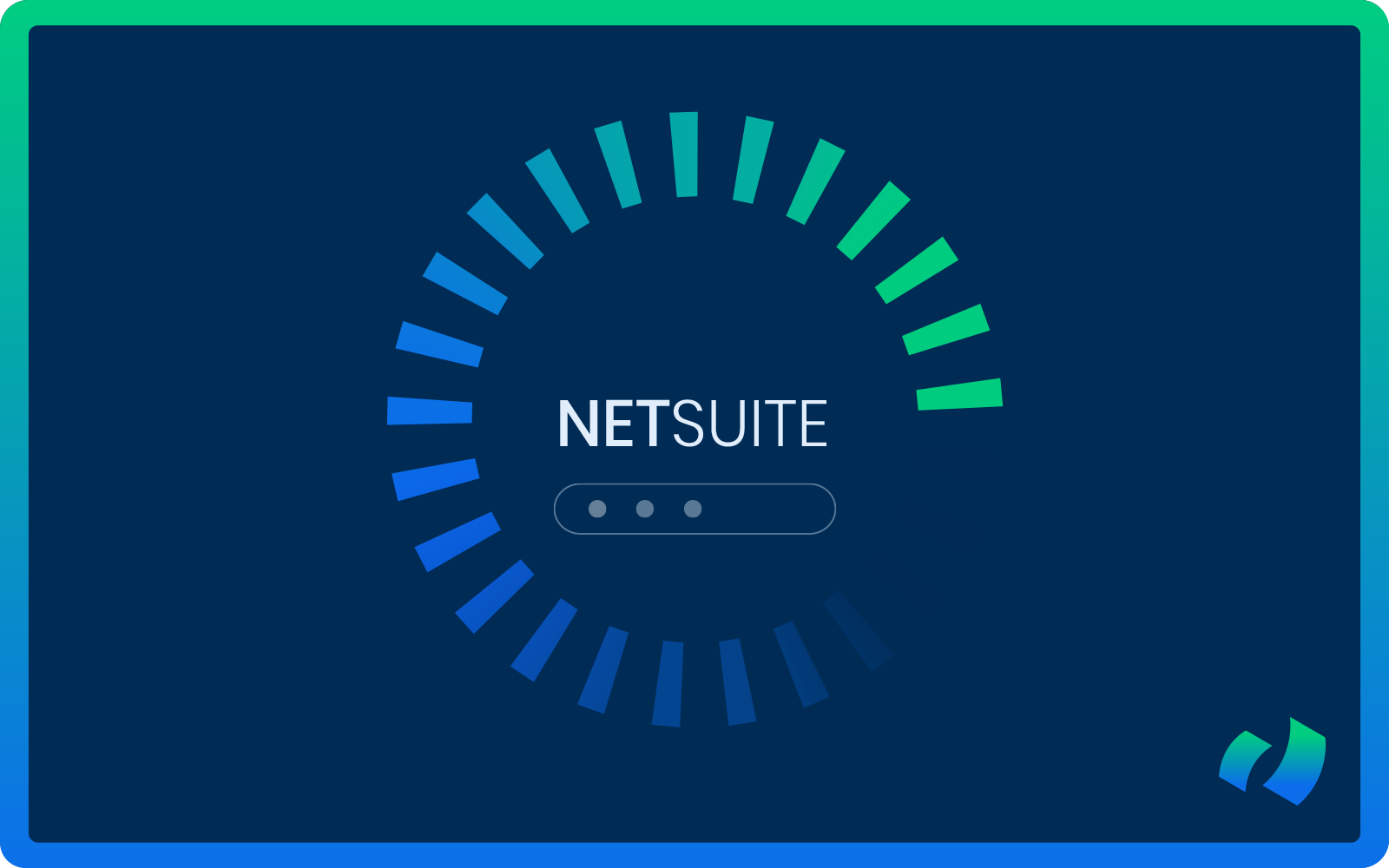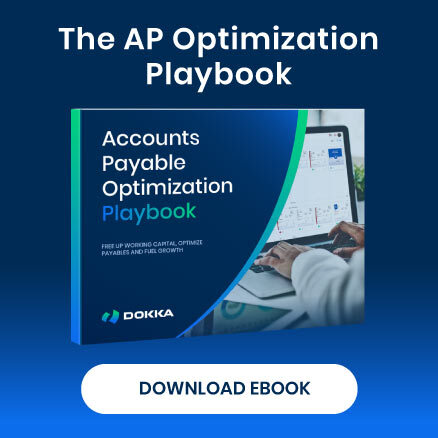NetSuite is a well-known cloud-based enterprise resource planning (ERP) software that provides over 41,000 businesses with tools to manage core operations such as financials, inventory, customer relationships, and e-commerce—all within a single platform. DOKKA integrates directly with NetSuite and helps you automate both AP and financial close processes.
The reason why NetSuite is so popular lies in its scalability and ability to streamline processes, improve efficiency, and provide real-time insights across departments. But since it’s a large and comprehensive system, it sometimes experiences performance issues that can lead to slow response times. These slowdowns may disrupt daily workflows, frustrate users, and impact overall productivity if not properly addressed.
So, what are the key issues that cause NetSuite to run slowly, and how can they be fixed? Let’s find out.
8 Common NetSuite Bottlenecks
1) Too Many Custom Scripts & Workflows
NetSuite enables businesses to automate tasks using custom scripts and workflows. While powerful, an excessive number of scripts running simultaneously can lead to significant slowdowns. Scripts that execute every time a user creates or updates a record add unnecessary processing time, and poorly written scripts that query large datasets only exacerbate the issue.
Example: If multiple scripts are triggered each time an invoice is saved, NetSuite must process all of them before allowing the user to proceed, resulting in noticeable lag.
How to Fix It:
- Regularly audit and clean up scripts to remove outdated or redundant ones.
- Minimize user event scripts (those triggered on record creation, edits, or deletions) to reduce processing delays.
- Optimize script logic to prevent excessive database queries.
- Implement asynchronous processing where possible to ensure non-essential scripts don’t slow down transactions.
2) Heavy Saved Searches & Reports
Saved searches and reports are essential for extracting data, but they can become performance bottlenecks when pulling excessive information at once. A search that scans every record in the system—even those that aren’t needed—forces NetSuite to work harder than necessary.
Example: Running an unfiltered transaction report that retrieves five years of data instead of just the last three months can slow down NetSuite and delay other tasks.
How to Fix It:
- Apply filters to saved searches to limit the number of records being processed.
- Reduce displayed columns to show only necessary data, as each additional column increases processing time.
- Schedule reports to run during off-peak hours instead of generating them in real time.
- Use summary searches instead of detailed searches when possible to reduce system workload.
3) Too Much Old or Unorganized Data
Over time, NetSuite accumulates large volumes of historical data—old invoices, customer records, sales transactions, and more. When not properly managed, this data can slow down searches and increase report generation times. Duplicates and unnecessary records further contribute to the problem.
Example: If an employee searches for a customer and NetSuite must scan thousands of outdated or inactive accounts, results take longer to appear.
How to Fix It:
- Archive or delete old transactions that no longer serve a business purpose.
- Regularly remove duplicate records to prevent database clutter.
- Use automated cleanup scripts to maintain an efficient system.
- Implement a data retention policy to keep NetSuite streamlined.
- Enable indexing where possible to accelerate searches.
4) Slow Content Loading (CDN Issues)
NetSuite relies on a Content Delivery Network (CDN) to accelerate the loading of files such as images, scripts, and SuiteCommerce assets. When the CDN is disabled or misconfigured, users may experience slow page loads, particularly in dashboards and SuiteCommerce web stores.
Example: If a company’s SuiteCommerce site loads product images from a slow or improperly configured CDN, customers may face long wait times.
How to Fix It:
- Ensure NetSuite’s built-in CDN is enabled for optimized content delivery.
- Avoid third-party CDNs unless they have been thoroughly tested with NetSuite.
- Optimize large files and images before uploading them.
- Check browser caching settings to prevent unnecessary file reloads.
5) Too Many User Permissions & Roles
NetSuite features a robust role-based permission system, but granting excessive permissions to too many users can slow down performance. The system must conduct additional security checks, increasing processing time—especially when generating reports or accessing sensitive records.
Example: If every employee has full access to transaction history, NetSuite must validate permissions for every request, even when most users don’t require that level of access.
How to Fix It:
- Regularly audit user roles and permissions to remove unnecessary access.
- Consolidate similar roles to streamline security checks.
- Use role-based dashboards to control what users can view and interact with.
- Implement automated role management to prevent role bloat over time.
6) Misconfigured Settings & Features
Many NetSuite settings impact performance, and improper configurations can lead to slowdowns. Factors such as session timeouts, inefficient list views, and excessive concurrent users can all contribute to performance degradation.
Example: If every employee’s dashboard is set to display hundreds of records at once, the system experiences unnecessary strain every time they log in.
How to Fix It:
- Enable server-side paging for lists to reduce data load.
- Adjust session timeout settings to balance security and efficiency.
- Limit concurrent users running resource-intensive tasks, such as mass record updates.
- Disable unused features that may be consuming system resources.
7) Integration Overload (Too Many API Calls or Connected Systems)
NetSuite often integrates with other systems (e.g., CRM, eCommerce platforms, third-party apps) via APIs. When these integrations send excessive requests or are poorly configured, they can overwhelm NetSuite’s processing power.
Example: If an eCommerce platform sends thousands of API requests to update inventory every few minutes instead of batching them efficiently, the entire system may slow down for other users.
How to Fix It:
- Optimize API calls by reducing their frequency and bundling multiple updates into fewer requests.
- Implement queuing mechanisms to ensure external systems send data in a controlled manner rather than overwhelming NetSuite.
- Monitor API limits using NetSuite’s Governance & Usage Logs to identify excessive calls that may be causing slowdowns.
8) Network & Browser Performance Issues
Sometimes, NetSuite isn’t the cause of slow performance—issues like slow internet connections, outdated browsers, or excessive browser extensions can also have an impact. Since NetSuite operates entirely in the cloud, a slow local network will result in sluggish performance, no matter how well-optimized NetSuite itself is.
Example: If multiple users in an office are streaming videos, downloading large files, and using NetSuite simultaneously, it can cause delays in data retrieval and dashboard loading.
How to Fix It:
- Use a modern, NetSuite-supported browser (Chrome or Edge work best).
- Clear your browser cache and disable unnecessary extensions that may slow down performance.
- Ensure your internet connection is stable—an overloaded or slow network can make NetSuite feel sluggish.
- Use wired connections instead of Wi-Fi, if possible, for more stable speeds.
- Check for firewall or VPN interference—certain security settings can slow down access to cloud applications.
How DOKKA Can Help with NetSuite Bottlenecks
Optimizing NetSuite’s settings and workflows can significantly improve performance, but companies can enhance efficiency even further by integrating DOKKA into their processes. As an AI-powered automation tool, DOKKA streamlines accounting operations, reduces manual data entry, and enhances document management—all while seamlessly integrating with NetSuite.
- Faster Document Processing & Data Entry
Manual handling of large volumes of financial data is one of the biggest contributors to NetSuite slowdowns. By automating document capture, classification, and processing, DOKKA minimizes repetitive manual tasks. With fewer custom scripts and saved searches required, NetSuite’s performance remains unburdened.
- Intelligent Search & Data Organization
AI-powered search capabilities within DOKKA enable users to quickly locate financial documents and transaction records. Instead of relying on resource-intensive saved searches in NetSuite, information can be accessed directly within DOKKA, lightening NetSuite’s database load and improving response times.
- Seamless NetSuite Integration
Direct integration with NetSuite allows businesses to sync documents, invoices, and accounting data effortlessly. By transferring only necessary data, DOKKA prevents clutter and avoids performance slowdowns caused by excess information.
- Reducing API Overload
Businesses experiencing excessive API calls to NetSuite can leverage DOKKA as a smart middleware solution. By consolidating and optimizing data transfers, DOKKA prevents NetSuite from becoming overwhelmed while ensuring real-time data accuracy.
Book a free demo to discover how DOKKA can optimize your NetSuite experience.
Disclaimer: This article is based on publicly available information and the professional experience of the DOKKA team. DOKKA is not affiliated with Oracle or NetSuite.




